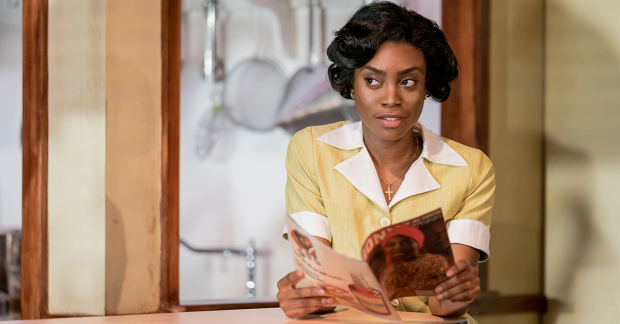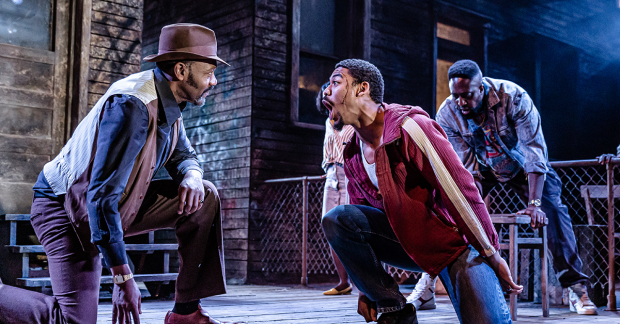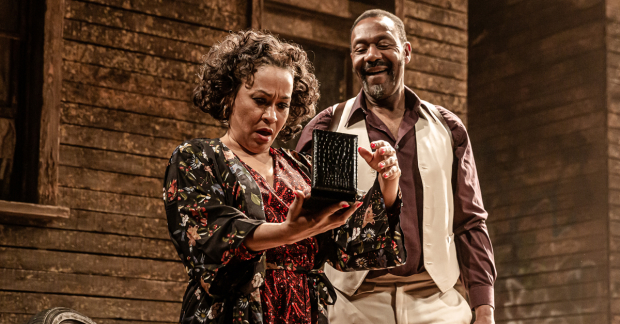Review: Two Trains Running (Royal and Derngate)

© Manuel Harlan
American playwright August Wilson, who died in 2005, is perhaps best remembered for his epic cycle of plays about the African-American experience in Pittsburgh in each decade of the 20th century. This production from that cycle covers the emerging civil rights movement and awareness in the late 1960s and is forensic in its slice-of-life approach.
Two Trains Running follows the intersecting lives and fortunes of half a dozen denizens of a rundown diner in The Hill – one of Pittsburgh's poorest and toughest neighbourhoods – as they struggle to survive day to day on past memories and future dreams. So while cafe owner Memphis yearns to reclaim his appropriated farm in the deep south, young Sterling, fresh from a spell in the penitentiary, gazes wide-eyed at waitress-cum-dogsbody Risa and longs optimistically for a better life.
There's plenty of the gritty characterisation and linguistic muscularity for which Wilson is renowned – two plays in the cycle, Fences and The Piano Lesson, won Pulitzer Prizes – and the performances of the seven-strong cast feel authentic and emotionally engaged.
Andrew French's Memphis masks a pent-up fury with the superficial geniality of the host in Frankie Bradshaw's beautifully designed diner set, which evokes the period with meticulous detail. Anita-Joy Uwajeh turns Risa into a spiky, thoroughly modern miss who takes no nonsense from her clientele, while Derek Ezenagu is most affecting of all as the learning-disabled Hambone, tears in his eyes as he discovers new ways to articulate his own particular frustrations.
What's more difficult to discern is the intention of director Nancy Medina as she negotiates the dense, wordy script with her cast. Is it simply a snapshot of a moment in American history that highlights a specific set of challenges faced by this collapsing community? Or is Medina looking to draw other comparisons, strike modern resonances and deliver some message to a 2019 audience?
The answer seems to me to be far from clear, and the result is that this three-hour dip into the characters' lives – interesting though they may be – is ultimately inconclusive, vaguely unsatisfying and unquestionably long. There's a red door suspended over the crumbling diner which is referenced in the text as the portal to the mystical, fortune-telling Aunt Ester. It opens once during a scene change, to no apparent purpose, and merely serves to confuse.
Similarly, while the script makes it plain that the diner's jukebox has been left unrepaired for months, the action is frequently underscored with off-stage music and sound effects that do little except raise questions in the viewer's mind: Where is this coming from? What's it for? How is it helping?
Co-produced by Royal and Derngate and English Touring Theatre, Two Trains Running is a production performed with commitment and belief by its cast, and will take Wilson's work to a UK-wide audience as it tours until the end of October. Quite what they will make of it is anybody's guess.

















